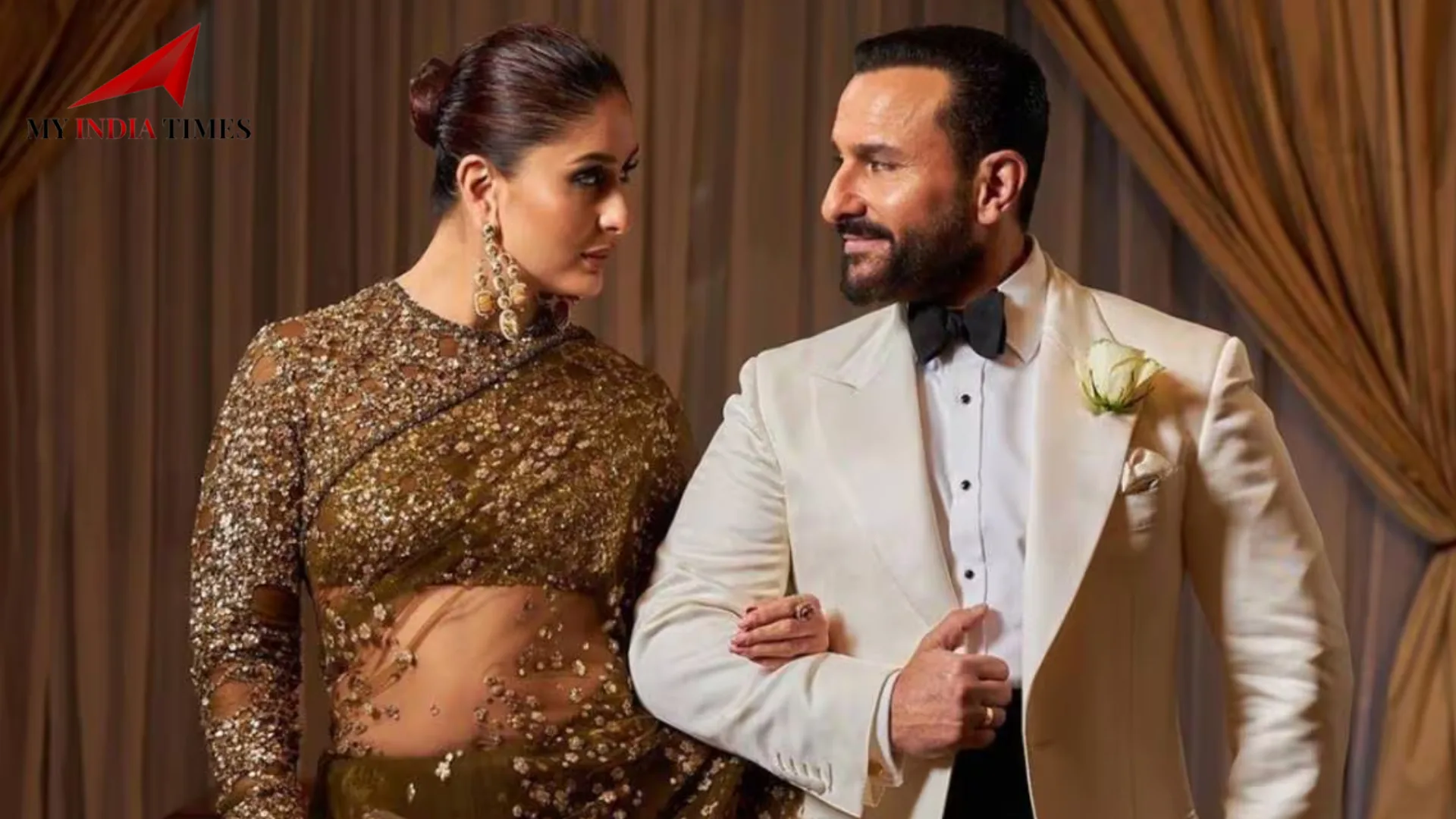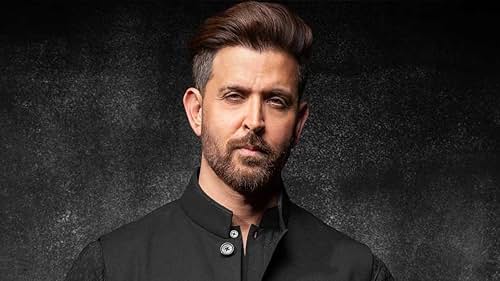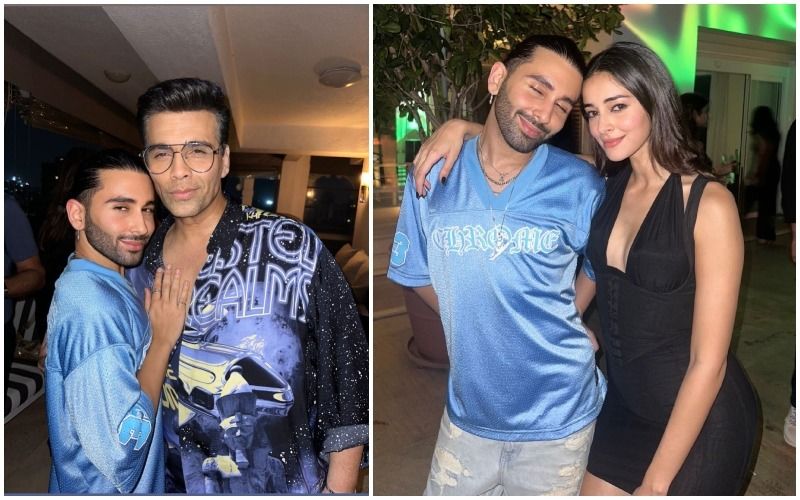Home / bollywood / Bhumi Pednekar Calls for AI Revolution in Films at World Economic Forum
Bhumi Pednekar Calls for AI Revolution in Films at World Economic Forum
By: My India Times
4 minutes read 62Updated At: 2025-01-20

At the World Economic Forum (WEF) 2025, Bhumi Pednekar articulated her vision for the transformative impact of Artificial Intelligence (AI) on the film industry. The actress underscored AI's capability to dismantle barriers, foster inclusivity, and enhance accessibility in global cinema.
How AI Can Revolutionize Global Cinema
Bhumi emphasized the transformative potential of artificial intelligence in revolutionizing the filmmaking and viewing experience on a global scale. AI can effortlessly translate films into a variety of languages, ensuring that no audience feels excluded. Additionally, it has the capability to adjust cultural references in films to align with regional preferences, thereby delivering a personalized viewing experience for audiences worldwide.
She elaborated that AI empowers filmmakers to connect with broader audiences without the necessity of producing multiple versions of the same film. This innovation has the potential to enhance revenue streams while making cinema more accessible than ever before.
Bhumi Pednekar: Champion of Impactful Cinema
Over the past decade, Bhumi Pednekar has been known for taking on roles that challenge stereotypes and shed light on important social issues. From her debut in Dum Laga Ke Haisha to her bold performance in Bhakshak, Bhumi has consistently chosen films with a purpose.
Her ability to combine meaningful storytelling with commercial success gives her a credible platform to advocate for technological advancements in the film industry.
Sustainability in Film Production
At the forum, Bhumi also addressed the importance of sustainability in filmmaking. She urged the industry to adopt eco-friendly practices, such as using renewable energy, managing waste responsibly, and designing sets with sustainable materials.
Bhumi emphasized that the film industry has a significant environmental impact, and it’s time for everyone involved to take responsibility. She encouraged filmmakers to be pioneers in adopting green practices, setting an example for other industries.
Bhumi reiterated that the film industry has a considerable environmental footprint and that it is imperative for all participants to assume responsibility. She encouraged filmmakers to lead the charge in embracing green practices, thereby setting a benchmark for other industries to follow.
Bollywood’s Tech Revolution: Leading the Charge
Bollywood has already begun embracing advanced technologies like CGI, virtual reality, and AI. Films such as Brahmāstra have illustrated the industry's capability to utilize advanced technology for narrative development.
Bhumi's address propels this transformation, encouraging Bollywood to earnestly engage with AI adoption to create narratives that resonate on a global scale while remaining authentic to their cultural heritage.
Challenges of Integrating AI in Cinema
While the possibilities of AI are exciting, Bhumi acknowledged the challenges the industry may face. Ethical questions about creative ownership and the risk of job displacement for traditional roles in filmmaking are significant concerns.
Bhumi believes that while AI is a valuable tool, it must be used responsibly to enhance creativity rather than replace it. Striking the right balance will be crucial to ensuring the human essence of storytelling remains intact.
The Role of AI in Bridging Cultural Gaps
Bhumi emphasized that AI could help filmmakers tell stories that connect audiences worldwide. For example, a Bollywood film could feel just as personal to a viewer in Spain or South Korea as it does to someone in India. AI can preserve cultural nuances while adapting content to suit the sensibilities of diverse regions.
This approach, she believes, will allow cinema to transcend borders and bring people closer through shared narratives.
Bhumi’s Vision for a United Film Industry
Bhumi concluded her speech by advocating for a future where AI and creativity work together to democratize cinema. She envisioned a film industry where stories resonate across cultures, languages, and geographies, uniting audiences under a shared human experience.
She said, “AI is not here to replace storytellers; it’s here to amplify their voices and ensure that their stories reach every corner of the world.”
Conclusion: A New Era for Bollywood and Beyond
Bhumi Pednekar’s speech at the WEF 2025 has set a new benchmark for how Bollywood can adapt to the evolving technological landscape. Her call for AI-driven storytelling, coupled with a focus on sustainability, reflects her vision of a more inclusive and responsible film industry.
As Bollywood navigates this transformative phase, Bhumi’s leadership can inspire filmmakers to embrace technology while staying rooted in cultural authenticity. This marks the beginning of an era where global storytelling becomes a reality, and cinema connects humanity like never before.
....At the World Economic Forum (WEF) 2025, Bhumi Pednekar articulated her vision for the transformative impact of Artificial Intelligence (AI) on the film industry. The actress underscored AI's capability to dismantle barriers, foster inclusivity, and enhance accessibility in global cinema.
How AI Can Revolutionize Global Cinema
Bhumi emphasized the transformative potential of artificial intelligence in revolutionizing the filmmaking and viewing experience on a global scale. AI can effortlessly translate films into a variety of languages, ensuring that no audience feels excluded. Additionally, it has the capability to adjust cultural references in films to align with regional preferences, thereby delivering a personalized viewing experience for audiences worldwide.
She elaborated that AI empowers filmmakers to connect with broader audiences without the necessity of producing multiple versions of the same film. This innovation has the potential to enhance revenue streams while making cinema more accessible than ever before.
Bhumi Pednekar: Champion of Impactful Cinema
Over the past decade, Bhumi Pednekar has been known for taking on roles that challenge stereotypes and shed light on important social issues. From her debut in Dum Laga Ke Haisha to her bold performance in Bhakshak, Bhumi has consistently chosen films with a purpose.
Her ability to combine meaningful storytelling with commercial success gives her a credible platform to advocate for technological advancements in the film industry.
Sustainability in Film Production
At the forum, Bhumi also addressed the importance of sustainability in filmmaking. She urged the industry to adopt eco-friendly practices, such as using renewable energy, managing waste responsibly, and designing sets with sustainable materials.
Bhumi emphasized that the film industry has a significant environmental impact, and it’s time for everyone involved to take responsibility. She encouraged filmmakers to be pioneers in adopting green practices, setting an example for other industries.
Bhumi reiterated that the film industry has a considerable environmental footprint and that it is imperative for all participants to assume responsibility. She encouraged filmmakers to lead the charge in embracing green practices, thereby setting a benchmark for other industries to follow.
Bollywood’s Tech Revolution: Leading the Charge
Bollywood has already begun embracing advanced technologies like CGI, virtual reality, and AI. Films such as Brahmāstra have illustrated the industry's capability to utilize advanced technology for narrative development.
Bhumi's address propels this transformation, encouraging Bollywood to earnestly engage with AI adoption to create narratives that resonate on a global scale while remaining authentic to their cultural heritage.
Challenges of Integrating AI in Cinema
While the possibilities of AI are exciting, Bhumi acknowledged the challenges the industry may face. Ethical questions about creative ownership and the risk of job displacement for traditional roles in filmmaking are significant concerns.
Bhumi believes that while AI is a valuable tool, it must be used responsibly to enhance creativity rather than replace it. Striking the right balance will be crucial to ensuring the human essence of storytelling remains intact.
The Role of AI in Bridging Cultural Gaps
Bhumi emphasized that AI could help filmmakers tell stories that connect audiences worldwide. For example, a Bollywood film could feel just as personal to a viewer in Spain or South Korea as it does to someone in India. AI can preserve cultural nuances while adapting content to suit the sensibilities of diverse regions.
This approach, she believes, will allow cinema to transcend borders and bring people closer through shared narratives.
Bhumi’s Vision for a United Film Industry
Bhumi concluded her speech by advocating for a future where AI and creativity work together to democratize cinema. She envisioned a film industry where stories resonate across cultures, languages, and geographies, uniting audiences under a shared human experience.
She said, “AI is not here to replace storytellers; it’s here to amplify their voices and ensure that their stories reach every corner of the world.”
Conclusion: A New Era for Bollywood and Beyond
Bhumi Pednekar’s speech at the WEF 2025 has set a new benchmark for how Bollywood can adapt to the evolving technological landscape. Her call for AI-driven storytelling, coupled with a focus on sustainability, reflects her vision of a more inclusive and responsible film industry.
As Bollywood navigates this transformative phase, Bhumi’s leadership can inspire filmmakers to embrace technology while staying rooted in cultural authenticity. This marks the beginning of an era where global storytelling becomes a reality, and cinema connects humanity like never before.
By: My India Times
Updated At: 2025-01-20
Tags: bollywood News | My India Times News | Trending News | Travel News
Join our WhatsApp Channel











































































































.png)
 (1).png)























